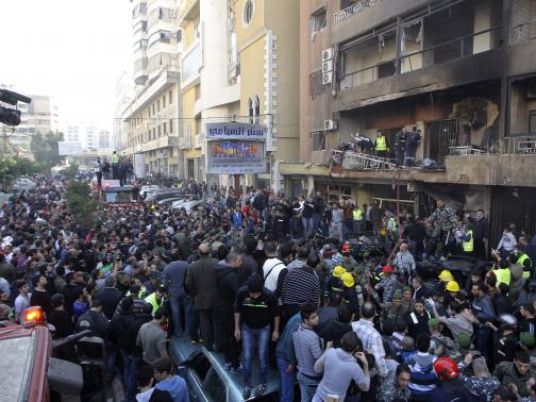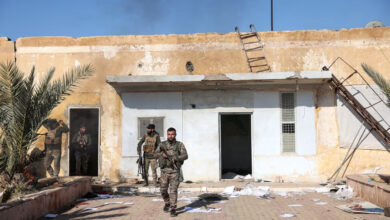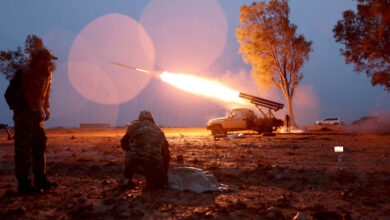
Lebanese troops battled jihadists on the Syrian border on Monday in a third day of clashes, further engulfing the divided country in the conflict next door.
Analysts said the violence could be contained in the short-term, but warned that an aggressive military response could stoke tensions in the area and elsewhere in Lebanon.
Soldiers fired mortar shells at militant positions in the mountains around the border town of Arsal, in eastern Lebanon, and the sound of heavy machinegun fire could be heard, an AFP photographer said.
A military source said the fighting had killed at least 16 soldiers, two of them officers, as well as "dozens" of militants.
At least three civilians have also been killed in the fighting, according to security sources.
Thick black smoke rose Monday from a petrol station set alight during the fighting, which hundreds of residents fled in the early hours of the morning.
Lebanon has officially sought to distance itself from the conflict in neighbouring Syria that began in March 2011, espousing a policy of "dissociation".
But the uprising against Syrian President Bashar al-Assad has crept continually across the border, inflaming existing sectarian and political tensions.
There are more than one million Syrian refugees in Lebanon, testing the limited resources of the country, as well as the patience of its four million citizens.
And the country's powerful Shia Hezbollah movement has openly intervened in the Syrian conflict, dispatching fighters to bolster regime troops against the Sunni-dominated uprising.
Majority-Sunni Arsal is broadly sympathetic to the uprising against Assad's regime, and has regularly been bombed by Syrian regime troops who say that are targeting opposition fighters holed up in the area.
– Violence after 'jihadist' held –
On Monday, the Syrian foreign ministry issued a statement expressing its "support and solidarity with the Lebanese army as it faces terrorist groups."
The violence in the eastern Lebanese region began on Saturday afternoon, after soldiers detained a Syrian man, Imad Ahmed Jumaa, who the army said confessed belonging to Al-Qaeda's Syria affiliate, Al-Nusra Front.
Jihadists angered by the arrest surrounded army checkpoints and opened fire, prompting fierce clashes as well as the storming of a police station, during which two civilians were killed.
Army chief General Jean Kahwaji said Sunday that at least 13 soldiers were missing and might have been taken hostage.
The fighting has raised new concerns about the effects of the Syrian conflict on fragile Lebanon, which fought a brutal civil war between 1975 and 1990.
Many of Lebanon's Sunnis back the uprising against Assad, whose regime is closely allied with Hezbollah, a powerful political force in Lebanon.
Emile Hokayem, a senior fellow for regional security at the International Institute for Strategic Studies, said the situation in Arsal was inevitable "spillover" from the Syrian conflict.
"As much as the Lebanese like to think that Syria's problems are coming to Lebanon, the reality is that Lebanon sent fighters for and against Assad to Syria… so we shouldn't be surprised that it's coming here."
He said the situation in Arsal could be contained in the short-term, but warned that an aggressive army response or the involvement of Hezbollah's fighters would anger Lebanon's Sunni community.
Hezbollah's involvement "would validate the concerns… of the very people whose cooperation is most important in fighting these groups, which is the Sunni community."
Many of Lebanon's Sunni Muslims resent Hezbollah's outsized military power, and have been angered by its role in Syria.
But the group says it is fighting in Syria to prevent militants from groups like Al-Nusra and the jihadist Islamic State threatening Lebanon.
– Army is 'a red line' –
The clashes in Arsal have prompted international concern, including from Washington, as well as domestic condemnation.
Prime Minister Tammam Salam described the assault as "a flagrant attack on the Lebanese state," and former prime minister Saad Hariri, the Sunni community's most prominent political representative, said Lebanon's army was a "red line."
"There will be no leniency with the takfiri (extremist) and terrorist organisations and their destructive project," he told the Al-Hayat newspaper.




